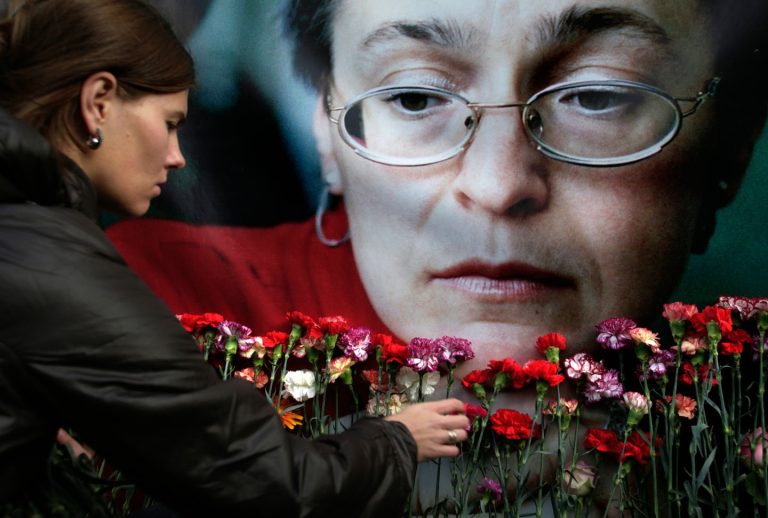Here are four more Russians who died after criticizing or investigating Putin.
death: She was shot dead in the lobby of her apartment building in Moscow
Anna Politkovskaya is best known for her passionate reporting and investigations into corruption in Putin's Russia, especially in Chechnya, a Muslim-majority region in southwestern Russia. In her book “Putin's Russia,” she wrote that she hates Putin because of his “cynicism, racism, and lies.”
Politkovskaya was shot twice, once in the head, one Saturday afternoon in October 2006. The gun was thrown at her feet, according to Vitaly Yaroshevsky, who was then deputy editor of her newspaper, Novaya Gazeta. It was one of the few independent newspapers published in Russia, and is now based in Riga, Latvia.
The month after Politkovskaya's murder, Alexander Litvinenko went to tea in a London hotel. Litvinenko, a former KGB spy turned British intelligence agent and critic of Putin, was quickly taken to hospital and found to have been poisoned with polonium 210, a radioactive isotope, which was found in green tea. Two Russians have been named as suspects in the poisoning. They fled to Russia.
Litvinenko was secretly working for the British intelligence service MI6, while also writing articles criticizing Putin, accusing him of corruption and pedophilia.
On his deathbed, Litvinenko blamed Putin for his impending death. A British court said nearly a decade later that there was “strong circumstantial evidence that the Russian state is responsible.”
He had just become a British citizen, a move he thought would protect him from Putin's minions. “Now they won't be able to touch me,” he told a friend, according to the court report.
death: Beaten to death in prison
The tax consultant may not seem like the most likely person to anger Putin, but Sergei Magnitsky found himself imprisoned after exposing a web of financial corruption that linked millions of fraud-tainted dollars to the Kremlin.
He died in November 2009 after being beaten in prison, where he had been held for almost a year. A British human rights organization claimed that “inhumane detention conditions, isolation from his family, lack of regular access to his lawyers, and deliberate refusal to provide adequate medical assistance” led to his death. Navalny's supporters had made similar complaints about his treatment in prison before his death.
Magnitsky's name is still present in what is known as the Magnitsky Act, which President Obama signed into law and imposes sanctions on those suspected of violating human rights.
death: Shot dead on a bridge in Moscow
Boris Nemstov, once seen as a potential successor to Boris Yeltsin – the first president of the Russian Federation – met his fate on a Moscow bridge just steps from the Kremlin. He was shot dead on a Friday evening in February 2015, the day before a march he helped organize.
Nemstov, a trained physicist who rose from a regional governor to deputy prime minister under Yeltsin, has become a vocal critic of Putin, accusing him of corruption and bolstering Russian forces to fight alongside separatists in Ukraine. He alleged that Putin's associates were beneficiaries of corruption related to the 2014 Olympics in Sochi, his hometown.
Putin said the shooting was a “provocative” contract killing, a Kremlin spokesman said at the time. Putin had said in 2012 that opposition figures might launch a false operation, carry out one of them, and attribute it to the Russian state.
Nemstov had said weeks before his killing that he was “a little” afraid that Putin might kill him, and told Sopesednik magazine that if he had been “so afraid, I probably wouldn't have headed an opposition party.”
A stretch of road in front of the Russian Embassy in Washington to Boris Nemstov Square was designated as a monument to Nemstov, a major blow to Moscow.
Peter Finn, Griff White, Michael Birnbaum and Anais Sheen contributed to this report.

